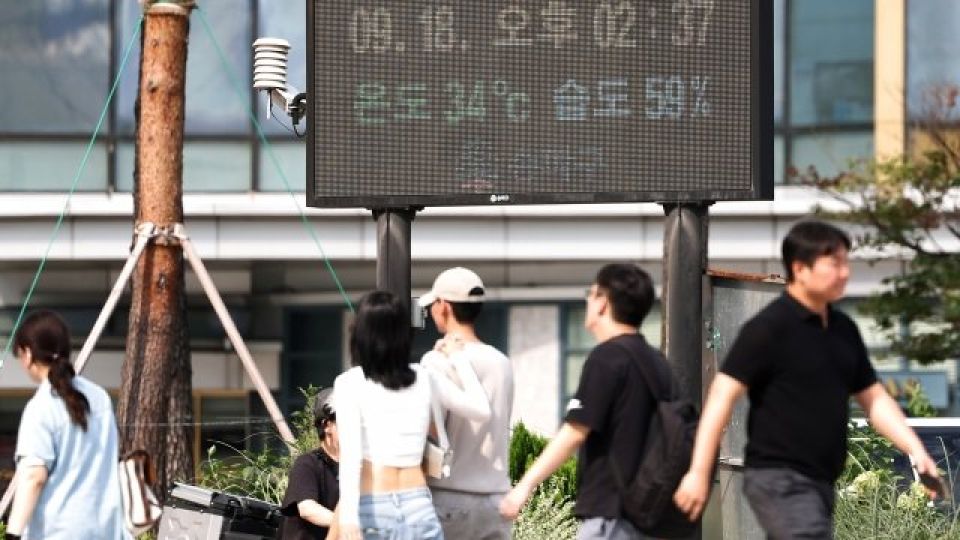September 19, 2024
SEOUL – Amid the prolonged summer in South Korea, research revealed Wednesday shows that rising temperatures can cause not just heat-related illnesses but also increase the risk of obtaining mental illnesses such as depression.
According to joint research conducted by the Catholic University of Korea, Seoul National University and Pusan National University with 219,187 respondents of the Korea Disease Control and Prevention Agency’s Community Health Survey, for every increase in average annual temperatures by 1 degree Celsius, the respondents were 13 percent more likely to report having depressive symptoms.
South Korea is experiencing a historic September now, with the nationwide average of day high temperatures during the Sept 1-14 period reaching 31 degrees Celsius for the first time in 52 years. That is 1.5 degrees higher than the previous record set in 1998, which was one of the hottest Septembers recorded on the Korean Peninsula, according to the Korea Meteorological Administration.
On Wednesday, heat wave warnings were issued across most of the country, with average daytime temperatures estimated to reach 33 to 35 degrees. Tropical nights, or nights when temperatures do not drop below 25 degrees, were also unusually recorded in areas including Seoul, Incheon and Daejeon. Chuncheon in Gangwon Province recorded tropical nights in September for the first time since weather records were first kept in the city. Seoul recorded a second tropical night on Wednesday for the first time since weather records were first kept, with the first on Sept. 10.
The recent joint study on the correlation between temperatures and mental health is related to research conducted by Seoul National University in 2018, which suggested that exposure to high temperatures increased the probability of being hospitalized due to mental health deterioration.
The 2018 study revealed that up to 14.6 percent of patients hospitalized due to mental illnesses were affected by heat waves. With 19.1 percent of such patients aged 65 and above, study results showed that the elderly are more vulnerable to high temperatures. Anxiety accounted for the most significant proportion of psychiatric disorders at the time at 31.6 percent, followed by dementia at 20.5 percent, schizophrenia at 19.2 percent and depression at 11.6 percent.
“Exposure to higher temperatures compared to those we are acclimatized to can lead to depression due to discomfort, sleep disturbances and decline in one’s daily life,” said professor Bae Sang-hyuk from from the Catholic University of Korea’s Department of Preventive Medicine regarding the joint study results. “The study results suggest that we now need to prepare for the psychiatric aspects of climate change among the many other health impacts it may cause.”
Meanwhile, the National Center for Mental Health, an operating agency affiliated with the Ministry of Health and Welfare, announced a bid Sunday to develop a tool to analyze and evaluate the impacts of the climate crisis on mental health. After conducting its comprehensive assessment of the effects of climate change on mental health until October 2025, the agency aims to use the research results as a basis for developing relevant indicators and policies.


